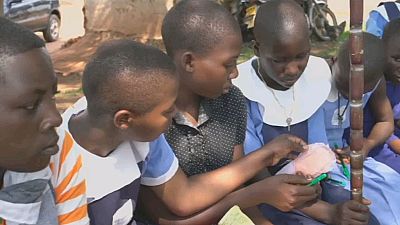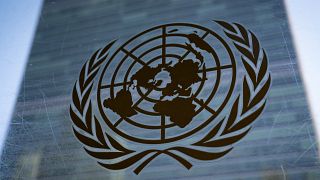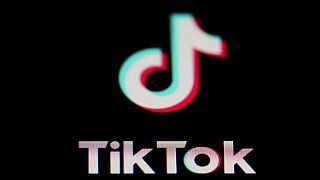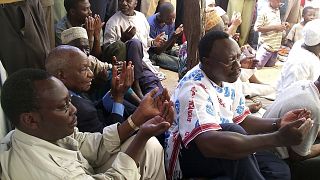Uganda
The silent barrier to educational rights of girls in Africa is the menstrual period, which is still a taboo subject that restricts access to education for many girls.
The normal biological process has not only turned out to be a huge burden but also another contributor to gender disparity.
But a start up company in Uganda has come up with a solution to this problem by developing affordable and eco-friendly sanitary towels made out of sugarcane by-products.
“Many girls cannot afford the sanitary pads on the market. When you go to schools you will be surprised to know that some will miss school because they are going through their menstrual periods, the four days of their menstrual periods, they do not have the right materials to use, they are so embarrassed in public because they will stain their dressed and everyone will laugh at them so they choose to stay at home,” said the co-founder of Eco Smart Pads.
The group of young entrepreneurs decided to use sugarcane because it offers a low cost alternative and provides an absorbent fibre when processed.
Noel Aryanyijuka, the CEO of the company goes through the process:
“You have the sugarcane and the water that is already steamed coming in here, so what you are doing is boiling the sugarcane residue, mainly to remove the sugar content and to soften it. After, you use the sieve to sieve out the paper all together with the fibre, so the water drains through the sieve, and after this process you are taking it for drying.”
Working together with the United Nations and other partners, the Eco Smart company is still in the process of making good quality sanitary pads though they have already started getting feedback about their product.
“Those eco pads, they will help those girls how? Because some girls are poor and don’t have money to buy other pads,” said Beineshanyu Mira Kevin, a student who has used the sanitary pad.
With this innovation, the Eco Smart company recently won a grant of 10,000 US dollars in a competition that supports entrepreneurs seeking to address sexual reproductive health challenges.
The UN estimates that one in ten girls in sub-Saharan Africa do not attend school during menstruation. This causes them to lag behind in their education, and even drop out of school entirely, creating negative long-term consequences.














11:05
Africa's hight cost of climate change [Business Africa]
01:16
Kenya investigates alleged abduction in Nairobi of Uganda opposition figure
01:16
Ugandan opposition politician kidnapped and jailed, his wife says
02:19
Thousands of refugees in Uganda struggle to get by, amid cuts in humanitarian aid
01:41
Victims of Uganda’s Lord’s Resistance Army disappointed in sentence
01:55
Uganda invests $3 billion in new railway system for efficient transport